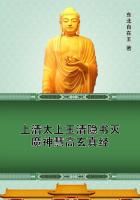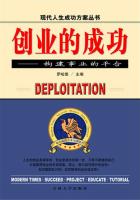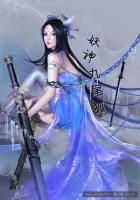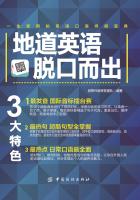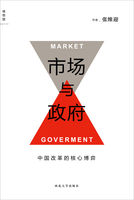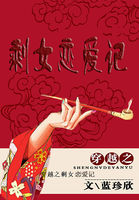It might be asked why the government should buy this land, when it had millions of yes, more than the railroad companies desired, which, it might devote to this purpose? He answered, that the government had no such tract of land as this. It had nothing comparable to it for the purposes of the University: This was to be a school of mining, of engineering, of the working of metals, of chemistry, zoology, botany, manufactures, agriculture, in short of all the complicated industries that make a state great. There was no place for the location of such a school like the Knobs of East Tennessee. The hills abounded in metals of all sorts, iron in all its combinations, copper, bismuth, gold and silver in small quantities, platinum he--believed, tin, aluminium; it was covered with forests and strange plants; in the woods were found the coon, the opossum, the fox, the deer and many other animals who roamed in the domain of natural history; coal existed in enormous quantity and no doubt oil; it was such a place for the practice of agricultural experiments that any student who had been successful there would have an easy task in any other portion of the country.
No place offered equal facilities for experiments in mining, metallurgy, engineering. He expected to live to see the day, when the youth of the south would resort to its mines, its workshops, its labratories, its furnaces and factories for practical instruction in all the great industrial pursuits.
A noisy and rather ill-natured debate followed, now, and lasted hour after hour. The friends of the bill were instructed by the leaders to make no efort to check it; it was deemed better strategy to tire out the opposition; it was decided to vote down every proposition to adjourn, and so continue the sitting into the night; opponents might desert, then, one by one and weaken their party, for they had no personal stake in the bill.
Sunset came, and still the fight went on; the gas was lit, the crowd in the galleries began to thin, but the contest continued; the crowd returned, by and by, with hunger and thirst appeased, and aggravated the hungry and thirsty House by looking contented and comfortable; but still the wrangle lost nothing of its bitterness. Recesses were moved plaintively by the opposition, and invariably voted down by the University army.
At midnight the House presented a spectacle calculated to interest a stranger. The great galleries were still thronged--though only with men, now; the bright colors that had made them look like hanging gardens were gone, with the ladies. The reporters' gallery, was merely occupied by one or two watchful sentinels of the quill-driving guild; the main body cared nothing for a debate that had dwindled to a mere vaporing of dull speakers and now and then a brief quarrel over a point of order; but there was an unusually large attendance of journalists in the reporters'
waiting-room, chatting, smoking, and keeping on the 'qui vive' for the general irruption of the Congressional volcano that must come when the time was ripe for it. Senator Dilworthy and Philip were in the Diplomatic Gallery; Washington sat in the public gallery, and Col.
Sellers was, not far away. The Colonel had been flying about the corridors and button-holing Congressmen all the evening, and believed that he had accomplished a world of valuable service; but fatigue was telling upon him, now, and he was quiet and speechless--for once. Below, a few Senators lounged upon the sofas set apart for visitors, and talked with idle Congressmen. A dreary member was speaking; the presiding officer was nodding; here and there little knots of members stood in the aisles, whispering together; all about the House others sat in all the various attitudes that express weariness; some, tilted back, had one or more legs disposed upon their desks; some sharpened pencils indolently;some scribbled aimlessly; some yawned and stretched; a great many lay upon their breasts upon the desks, sound asleep and gently snoring.
The flooding gaslight from the fancifully wrought roof poured down upon the tranquil scene. Hardly a sound disturbed the stillness, save the monotonous eloquence of the gentleman who occupied the floor. Now and then a warrior of the opposition broke down under the pressure, gave it up, and went home.
Mr. Buckstone began to think it might be safe, now, to "proceed to business." He consulted with Trollop and one or two others. Senator Dilworthy descended to the floor of the House and they went to meet him.
After a brief comparison of notes, the Congressmen sought their seats and sent pages about the House with messages to friends. These latter instantly roused up, yawned, and began to look alert. The moment the floor was unoccupied, Mr. Buckstone rose, with an injured look, and said it was evident that the opponents of the bill were merely talking against time, hoping in this unbecoming way to tire out the friends of the measure and so defeat it. Such conduct might be respectable enough in a village debating society, but it was trivial among statesmen, it was out of place in so august an assemblage as the House of Representatives of the United States. The friends of the bill had been not only willing that its opponents should express their opinions, but had strongly desired it. They courted the fullest and freest discussion; but it seemed to him that this fairness was but illy appreciated, since gentlemen were capable of taking advantage of it for selfish and unworthy ends. This trifling had gone far enough. He called for the question.
The instant Mr. Buckstone sat down, the storm burst forth. A dozen gentlemen sprang to their feet.
"Mr. Speaker!"
"Mr. Speaker!"
"Mr. Speaker!"
"Order! Order! Order! Question! Question!"
The sharp blows of the Speaker's gavel rose above the din.
The "previous question," that hated gag, was moved and carried. All debate came to a sudden end, of course. Triumph No. 1.




